Recent Blog Posts
Impact of Criminal Record Expungement on Bond Repayment
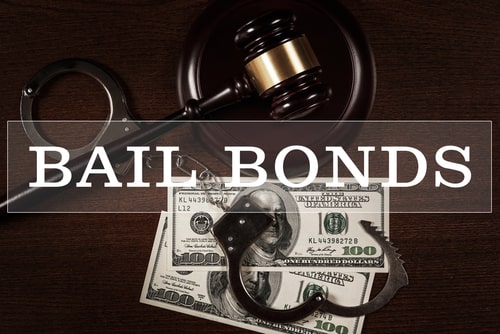 Criminal record expungement in Texas refers to the legal process of sealing or destroying records related to an arrest, charge, or conviction. It is a valuable tool for those who have been charged with or convicted of certain offenses, as it can help you move forward with your life without the stigma of a criminal record. However, the process of expungement can have implications for those who have posted bail or secured a bond for release. A Texas bail bond professional can guide you through the necessary steps.
Criminal record expungement in Texas refers to the legal process of sealing or destroying records related to an arrest, charge, or conviction. It is a valuable tool for those who have been charged with or convicted of certain offenses, as it can help you move forward with your life without the stigma of a criminal record. However, the process of expungement can have implications for those who have posted bail or secured a bond for release. A Texas bail bond professional can guide you through the necessary steps.
How Bail Bonds Work in Criminal Proceedings
Bail bonds play a crucial role in the criminal justice system. When you are arrested and charged with a crime, there may be some eligibility to post bail or obtain a bond to secure release from custody pending trial. Bail bond companies provide the necessary financial guarantees to the court, ensuring the defendant’s appearance at all scheduled court dates.
What is the Role of Collateral in Bail Bonds?
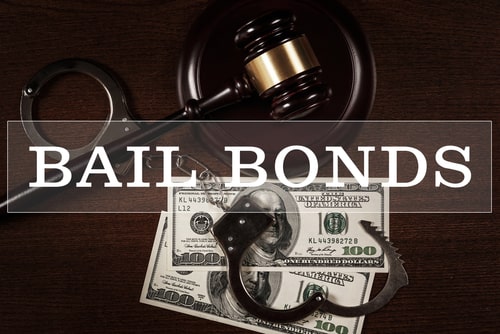 When an individual is arrested in Texas, there may be an opportunity to be released from jail on bail. Bail bonds are a common method used to secure a defendant’s release, and they often involve the use of collateral. A Texas bail bond professional can help you explore the role of collateral in bail bonds and how it can impact your situation.
When an individual is arrested in Texas, there may be an opportunity to be released from jail on bail. Bail bonds are a common method used to secure a defendant’s release, and they often involve the use of collateral. A Texas bail bond professional can help you explore the role of collateral in bail bonds and how it can impact your situation.
Make Sure You Understand What Bail Bonds Are
A bail bond is a type of surety bond offered by a bail bond professional for a defendant, ensuring their appearance in court when required. In Texas, the licensing and regulation of bail bond companies fall under the jurisdiction of the Texas Department of Insurance.
Upon posting a bail bond, the defendant is required to pay a non-refundable premium, usually 10% of the bail amount. In return, the bail bond company guarantees payment of the entire bail amount should the defendant not appear in court.
What to Do If Your Bail Bond Is Revoked
 If your bail bond has been revoked after being released in Texas, understanding the necessary steps to protect your rights and lessen the repercussions is vital. Consulting with a Texas bail bond professional can clarify the subsequent measures, the implications of a bail bond revocation, and the appropriate actions to undertake.
If your bail bond has been revoked after being released in Texas, understanding the necessary steps to protect your rights and lessen the repercussions is vital. Consulting with a Texas bail bond professional can clarify the subsequent measures, the implications of a bail bond revocation, and the appropriate actions to undertake.
What to Know About Bail Bond Revocation
A bail bond is a financial guarantee that ensures you will appear in court for your scheduled hearings. If you fail to meet the conditions of your release or violate the terms of your bail, the court may revoke your bail bond. This means that the bail bond company is no longer responsible for ensuring your appearance in court, and a warrant will be issued for your arrest.
Reasons for Bail Bond Revocation
There are several reasons why your bail bond may be revoked in Texas:
The Emotional Impact of Bail on Families in Texas
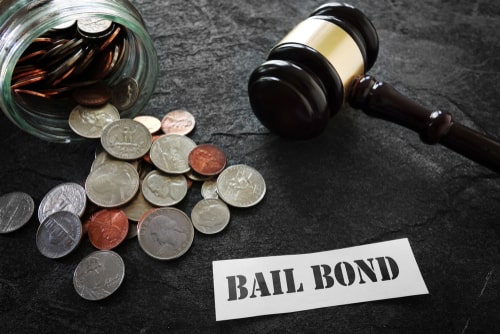 Having a loved one arrested and jailed is an incredibly stressful experience for any family. Beyond the legal issues, the emotional toll can be severe, especially when bail is set at a high amount. A bail bond professional can help you along the way so you know what steps to take in the best interest of your situation.
Having a loved one arrested and jailed is an incredibly stressful experience for any family. Beyond the legal issues, the emotional toll can be severe, especially when bail is set at a high amount. A bail bond professional can help you along the way so you know what steps to take in the best interest of your situation.
The Shock and Confusion
When someone gets arrested, the family is often entirely caught off guard. The initial news can send you into shock and confusion as a million questions race through your mind. Why did this happen? What are the charges? How serious is it? Panic and fear quickly set in as you try to make sense of the situation.
Shame and Embarrassment
Sadly, there is still a stigma surrounding arrests in our society. Many families feel a sense of shame about having a loved one in jail, even if the charges are relatively minor. They may avoid telling friends or extended family out of embarrassment. This isolation compounds the emotional difficulties.
Bail Bonds vs. Cash Bail: What is the Difference in Texas?
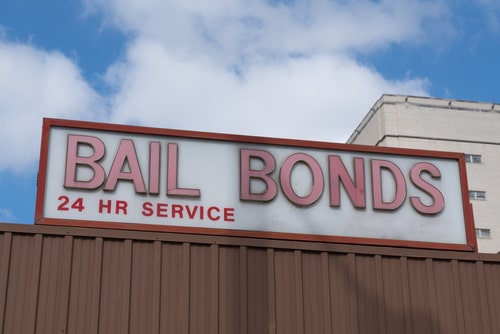 When someone is arrested, the court will typically set a bail amount that allows the defendant to be released from jail while their case moves through the system. Defendants and their families then have two main options to meet the bail requirements: post the total bail amount in cash or use a bail bond. There are important differences to understand between these two methods of securing someone's release from jail. A Texas bail bondsman can help you determine which is ideal.
When someone is arrested, the court will typically set a bail amount that allows the defendant to be released from jail while their case moves through the system. Defendants and their families then have two main options to meet the bail requirements: post the total bail amount in cash or use a bail bond. There are important differences to understand between these two methods of securing someone's release from jail. A Texas bail bondsman can help you determine which is ideal.
How Bail Bonds Work
If the court sets your bail at $5,000, for example, you could pay the $5,000 out of pocket to the court to secure your release. However, many defendants do not have thousands of dollars in cash readily available. This is where a bail bond comes in.
A bail bond agent, also called a bondsman, can post a bail bond on your behalf in exchange for a percentage payment, usually 10% of the total bail amount. You pay 10%, or $500, and the bondsman puts up the full $5,000 bail for you, allowing for your release. The fee paid is nonrefundable.
Should You Get Bail Right After Being Arrested?
 Once the initial shock of being arrested wears off, one of the first questions that may come to mind is, “Should I post bail right away?” This is an important decision with a lot to consider because it may be different for each person. Getting out of jail quickly is appealing, but there are many reasons why waiting may be a better move. A Texas bail bond professional can help determine what may be ideal for you.
Once the initial shock of being arrested wears off, one of the first questions that may come to mind is, “Should I post bail right away?” This is an important decision with a lot to consider because it may be different for each person. Getting out of jail quickly is appealing, but there are many reasons why waiting may be a better move. A Texas bail bond professional can help determine what may be ideal for you.
What Is Bail and How Does It Work?
Bail is money or collateral the court provides to secure a defendant’s release from jail before their trial. It is essentially a promise that you will return for future court appearances. When bail is set on a case, you or a bail bond company can pay the full bail amount to the court and be released. Alternatively, you may post a bond and charge a smaller, non-refundable fee, usually 10% of the bail amount.
4 Things to Know Before Posting Bail for a Loved One
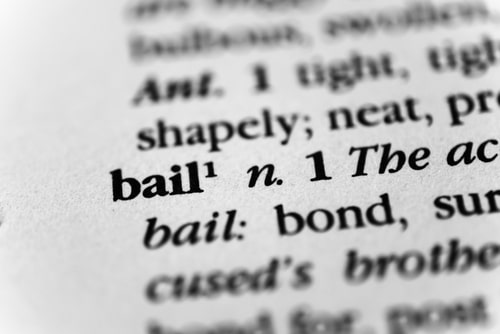 Having a family member go to jail is a stressful time for not just them but you as well. You can sometimes post bail to get your loved one out sooner and back home while their case is pending. However, some important things must be understood before posting bail on someone else’s behalf. A Texas bail bond professional can help you and your family members during this time.
Having a family member go to jail is a stressful time for not just them but you as well. You can sometimes post bail to get your loved one out sooner and back home while their case is pending. However, some important things must be understood before posting bail on someone else’s behalf. A Texas bail bond professional can help you and your family members during this time.
How Bail Works
Bail is the amount of money a judge sets to allow a defendant to be released from jail while their criminal case proceeds. The purpose of bail is to ensure the defendant returns to court when required. Those who post bail on a defendant’s behalf sign paperwork agreeing to be financially responsible for that person showing up for court. If the defendant misses court, the bail may be forfeited, and criminal charges may be filed against the cosigner.
What Happens After You Are Released from Jail?
 After being released from jail, the initial period of re-entry to society presents many challenges. In the first 48 hours, individuals must promptly address various needs to responsibly get their lives back on track. A Texas bail bond professional can ensure you follow the steps properly.
After being released from jail, the initial period of re-entry to society presents many challenges. In the first 48 hours, individuals must promptly address various needs to responsibly get their lives back on track. A Texas bail bond professional can ensure you follow the steps properly.
Securing Shelter And Basic Necessities
Having a place to stay and accessing basic necessities like food should take priority after release. In preparation, identify shelter options with family or friends if possible. Some re-entry programs and shelters can assist until longer-term housing is found. Obtaining emergency food stamps can alleviate hunger and meet nutritional needs in the short term.
Reconnecting With Support Networks
Connecting with close family members, your community, and faith-based or social service groups is important for successful reintegration. These support networks can provide invaluable emotional support, guidance, housing assistance, job referrals, and other resources to help you get back on your feet. Do not hesitate to ask for help with your basic needs.
What Happens When You Skip Bail?
 Being released on bail after an arrest allows defendants to be free until their court date. However, this freedom comes with responsibilities. Skipping out on bail has serious legal consequences. A Texas bail bond professional can help you or your loved one with potential bail.
Being released on bail after an arrest allows defendants to be free until their court date. However, this freedom comes with responsibilities. Skipping out on bail has serious legal consequences. A Texas bail bond professional can help you or your loved one with potential bail.
The Bail Bonding Process
After an arrest, a judge will set a bail amount based on factors like criminal history and flight risk. The defendant can pay the full bail amount upfront or use a bail bondsman. A bail bondsman charges a fee, usually 10% of the bail amount, to post a bond for the entire bail on the defendant’s behalf. This allows the defendant to be released from jail to await trial. The bail bond is a contract stating that the defendant will appear for all court dates. If they fulfill this obligation, the bail bondsman returns the fee at the end of the case. If not, the bondsman is authorized to apprehend and return the defendant to custody.
Navigating Your Loved One’s Bail
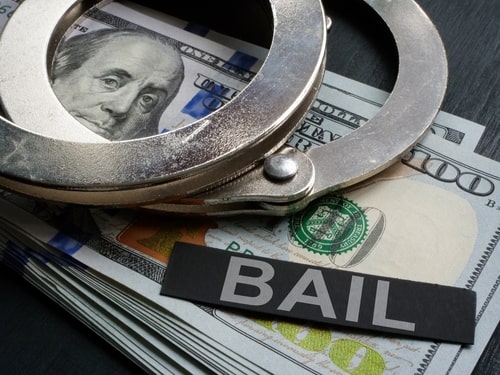 Understanding the bail system can be incredibly stressful and confusing for families when a loved one is in custody. A Texas bail bond professional aims to provide support and strategies to help families through this difficult process.
Understanding the bail system can be incredibly stressful and confusing for families when a loved one is in custody. A Texas bail bond professional aims to provide support and strategies to help families through this difficult process.
What is Bail, and How Does it Work?
The bail system allows for the temporary release of a defendant awaiting trial, given that bail is posted as a promise that the defendant will return for their court dates. Bail acts as collateral if the defendant fails to appear.
The bail amount set by the judge is based on factors like criminal history, flight risk, danger to the community, and more. Families often struggle to determine the bail amount to support their loved ones. This is where a bail bond can help.
How Bail Bonds Can Assist Families
Bail bond companies provide bail bonds to defendants and their families. A bail bond is a surety bond that allows the defendant to be released without paying the entire bail amount. Instead, the bail bond company charges a non-refundable fee, usually 10-15% of the bail amount.










